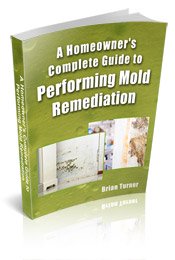Find a Mold Specialist Now
Click or Call, Toll-Free 24/7
Pink Mold
Pink mold is a common problem in many households, and this mold is usually found in the bathroom area within the home. This type of organic growth prefers a damp area and it thrives in materials such as bathroom grout, toilets, and other areas around the bathtub, shower and toilet.
What is Pink Colored Mold?

If you find mold in your shower, you are probably assuming that the problem is related to black mold or another type of mold. But, the truth is that this is actually not a fungus, pink colored mold is caused by a bacterium called “Serratia Marcescens.” This bacterium contains a type of mold, and it thrives in moist, wet environments.
It is suspected that pink bathroom mold is not as dangerous as black mold, but it is still important to quickly clean up the problem in order to avoid any potential health problems. Sometimes the mold problem can begin in a small area, and it will usually spread throughout other areas in the bathroom if it is left untreated.
Health Problems Associated with Pink Mold
Correlations have been found between this type of mold and human infections, such as urinary tract infections, wound infections, and gastrointestinal system problems. Even though these symptoms are not as severe as the symptoms that occur when black mold is present, they can still cause problems with your health if continued exposure occurs.
Once the mold has been cleaned up, it is important to take proactive steps in order to prevent future growth of pink bathroom mold.
How To Cleanup Pink Mold
The cleanup process is similar to the cleanup process for other types of mold. Start out by protecting yourself with the proper equipment, including goggles, gloves, and a mask approved for mold use. Be careful to not let the mold directly touch your skin. The affected area needs to be scrubbed down, and then thoroughly sanitized with a quality biocide to be sure that the organism is killed completely.
If any traces of pink bathroom mold are left, the problem will remain because the spores will likely continue to grow in the affected area. You can prevent the growth by sanitizing the area, and also preventing the buildup of moisture. Use a fan while showering, and wipe down wet surfaces to prevent the water from sitting after you are done showering.
Also, this mold growth can be prevented by avoiding soap buildup on the shower walls and floors. It is suspected that pink mold actually feeds on soap residue, so allowing the residue to sit on walls and floor of the shower may promote additional growth.
Consulting With a Professional
With any mold cleanup process, it is best to contact a professional mold removal specialist in order to verify that the problem has been taken care of. They will help you to understand any special procedures that need to be used to cleanup pink bathroom mold, and you will be at ease because you will be protecting the health of your family.
Some people want to cut corners in order to lower their cost of mold cleanup, but not consulting with a professional may result in the continued presence of mold. Even though the mold may not visible, it can still cause harm to your health if you are exposed to the microscopic mold spores.
You can work with a professional to have testing done after the cleanup process is complete, or you can have a stress free cleanup by allowing them to take care of the cleanup process for you. It is a good idea to ask for their advice in order to be sure that you are keeping your family safe from the dangers that can occur due to mold exposure.
Benefits of Talking With a Mold Removal Specialist
If you suspect that pink mold (or any other type of mold) is present in your home, the first step is to schedule a free consultation with a Mold Removal Specialist, who will help you to determine how severe the problem is. When the specialist comes to your home, they will inspect your property and perform necessary testing to assess the situation.
Here are just a few of the benefits to these free consultations:
- Professional testing can determine the levels of mold spores that are present, as well as the type of mold that you are dealing with.
- A mold specialist has hands-on experience working with various types of mold and they will be able to advise you on the best products to use to safely clean the problem area.
- There is never an obligation with a consultation. They are there simply to give you options and help you understand what needs to be done to remove all of the mold.
Return From Pink Mold To Our Main Types Of Mold Page
Black Mold Health Symptoms Home Page





